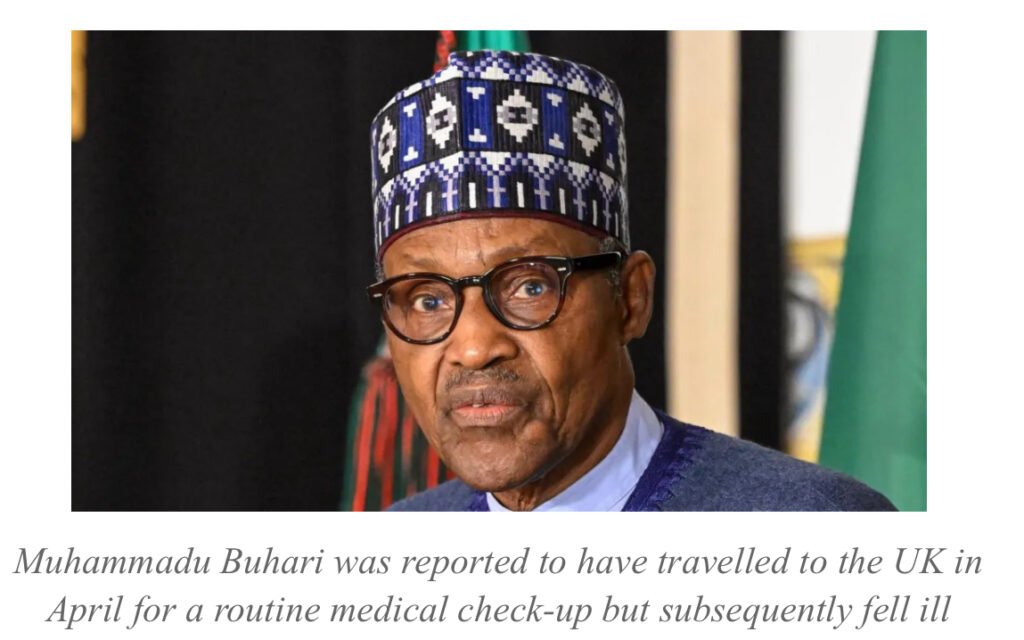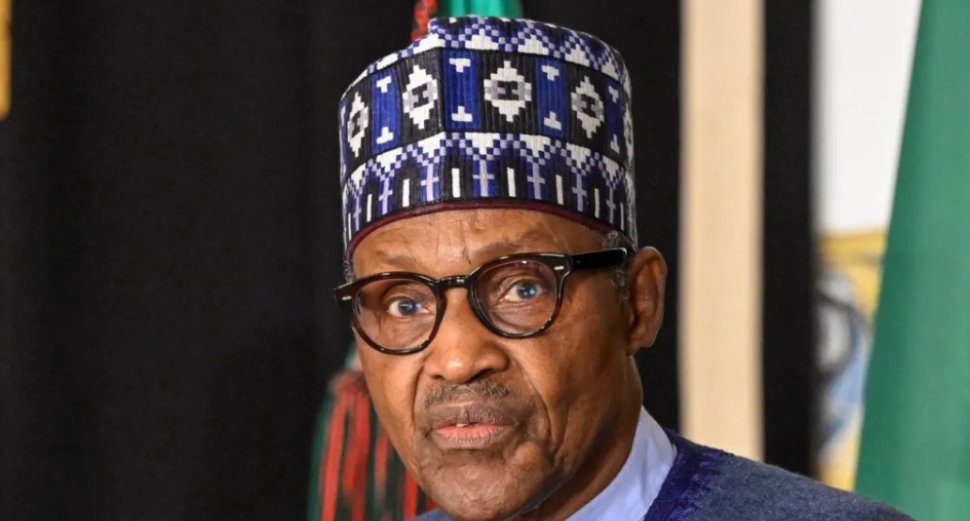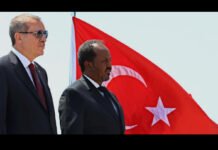By Horn Africa News Staff
London— Muhammadu Buhari, Nigeria’s former president and one of the most influential figures in the country’s modern political history, has died at the age of 82 in a London hospital, his family has confirmed.

Buhari had traveled to the United Kingdom in April 2025 for what was initially described as a routine medical check-up. However, sources close to the family report that his health took a turn for the worse shortly after his arrival. Although the exact cause of death has not been officially disclosed, questions about his health had loomed for years, particularly during his time in office from 2015 to 2023. His frequent medical visits to the UK during that period often sparked public debate and speculation about his fitness to govern.
A Military Man Turned Civilian Leader
Born on December 17, 1942, in Daura, Katsina State, Buhari joined the Nigerian military at a young age and quickly rose through the ranks. In 1983, at the height of widespread economic mismanagement and corruption, Major General Buhari led a military coup that overthrew the civilian government of President Shehu Shagari. As military head of state, Buhari ruled with an iron hand, implementing strict economic measures and launching a controversial anti-corruption campaign.
His regime, however, was short-lived. In August 1985, Buhari was deposed in another coup led by General Ibrahim Babangida, marking the end of his first stint in power after just 20 months.
Democratic Comeback
Buhari returned to the national political stage as a civilian in the early 2000s, running unsuccessfully for president three times before his landmark victory in 2015. Running under the All Progressives Congress (APC), Buhari defeated incumbent President Goodluck Jonathan, making him the first opposition candidate in Nigerian history to unseat a sitting president through the ballot box.
His 2015 victory was met with high hopes by millions of Nigerians who saw him as a symbol of integrity and discipline. Buhari campaigned on promises to root out corruption, restore security—especially against Boko Haram insurgents in the northeast—and revive the struggling economy.
A Mixed Legacy
During his eight years in office, Buhari’s administration made some gains in fighting corruption and improving infrastructure, including the completion of several major road and railway projects. However, his tenure was also marked by rising insecurity, including the spread of armed banditry and kidnappings, economic hardship, and criticisms over human rights abuses and suppression of dissent.
Buhari’s handling of ethnic and regional tensions, his prolonged absences due to health issues, and a perceived centralization of power in the executive also drew sharp criticism from civil society and opposition figures.
Still, supporters argue that he brought a degree of stability and a renewed focus on discipline and accountability in governance. His dual legacy—first as a military ruler and later as an elected civilian president—places him in a rare category of African leaders who experienced both ends of political leadership.
National and Continental Impact
Following news of his death, tributes began pouring in from across Nigeria and the African continent. Several leaders hailed him as a patriot who dedicated his life to public service. President Bola Tinubu is expected to announce a period of national mourning, and state funerals are being discussed.
Buhari is survived by his wife, Aisha Buhari, and several children.
As Nigeria reflects on the life of one of its most consequential leaders, his passing marks the end of an era defined by fierce nationalism, controversial leadership, and a lifelong commitment—however contested—to shaping the destiny of Africa’s most populous nation.





